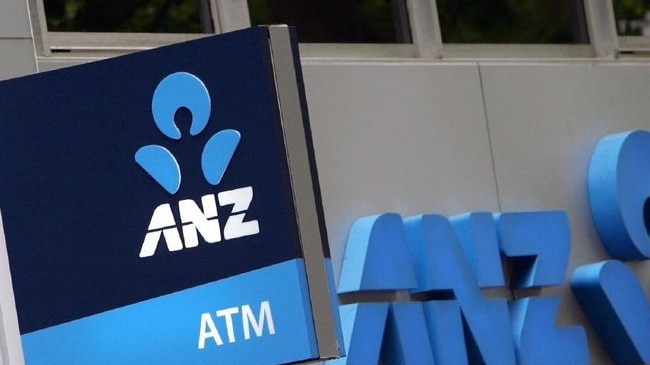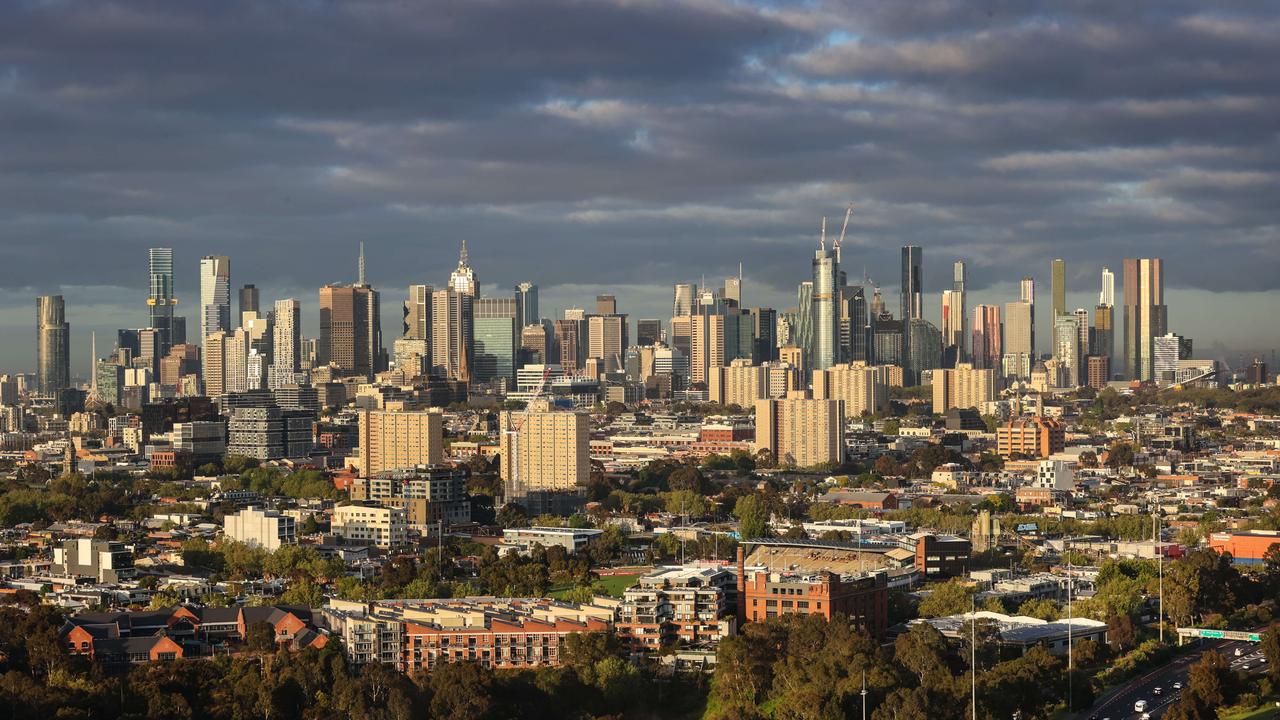ANZ cartel case: JPMorgan banker’s ‘dispute’ with ACCC
JPMorgan banker Jeff Herbert-Smith says he had a ‘dispute’ with the ACCC over a ‘critical point’ of his witness statement.

The former local head of markets with Wall Street bank JPMorgan who has been granted immunity from a blockbuster criminal cartel case against a suite of global investment banks had a “dispute” with the competition watchdog over a “critical point” of his witness statement, a court has heard.
Jeff Herbert-Smith, who left JPMorgan’s local operations within months of learning of the Australian Competition & Consumer Commission’s investigation into how investment banks handled a shortfall in demand for a $2.5bn ANZ capital raising, also claimed he “stood his ground” against the competition watchdog over the disagreement and revealed he was shunted on to a pivotal phone call at late notice when the bank’s chairman Robert Priestly “wasn’t around”.
Mr Smith was the second witness in the case at the Downing Centre Local Court on Friday to provide new revelations about the origins of information in their witness statements, which are being used to prosecute allegations Citigroup, Deutsche Bank and ANZ acted as a cartel when they were faced with a shortfall in demand for ANZ’s $2.5bn share placement to big fund managers in August 2015.
Mark Dewar, head of equity trading at JPMorgan, who has also been granted immunity, told the court that it was not his “idea” to include the contents of several paragraphs of his witness statement relating to the trading activities of JPMorgan and the activities of other banks, which were referred to as “competitors”.
READ MORE: Lid lifted on ‘immunity deal’ in ACCC’s ANZ cartel case | Bankers to probe ACCC representatives | Westpac brings in JPMorgan to sell its life insurance unit
The committal hearing on Friday came after the ACCC lost a bid to block cross-examining key witnesses and investigators from the regulator ahead of the trial.
The watchdog had argued the move could violate legal privilege and shed too much light on its internal procedures for dealing with complex investigations, but lawyers acting for the defendant banks are probing procedural matters aimed at examining the carriage of justice, including how the regulator questioned and dealt with JPMorgan witnesses, organised their witness statements, dealings between the ACCC and the Australian Securities & Investments Commission, and certain telephone recordings which are alleged to have been recorded improperly.
In an explosive suit launched mid-last year, the ACCC charged with cartel conduct six of the country’s most high-profile bankers: former Deutsche Bank head of capital markets Michael Richardson, ANZ’s chief risk officer for the Australian division Rick Moscati and former Deutsche Bank chief executive Michael Ormaechea, along with Citigroup’s head of capital markets, John McLean, Citigroup’s global head of foreign exchange trading, Itay Tuchman, and former Citigroup Australia chief executive Stephen Roberts. Each has denied the allegations.
While Citigroup, Deutsche and JPMorgan were acting as joint-lead managers on the raising, JPMorgan and a number of its bankers were granted immunity from legal action for its co-operation in the investigation.
The cartel allegations relate to how the banks then attempted to offload the unsold shares, worth about $800m, to investors.
Mr Herbert-Smith, who left the firm in early 2016, on Friday revealed he had a “disagreement about what an agreement was” with lawyers working for the ACCC when he was drafting his witness statement in relation to his recollections about a series of phone calls between Friday August 7 at 10am and Monday August 10, which form the basis of the ACCC’s case.
READ MORE: America Inc’s dream run over | PM stares down calls to expand ‘big stick’ powers | Take big stick to banks: Swan
“To my mind, it was three people making independent decisions,” Mr Herbert-Smith said. “Three independent decisions that happened to be the same.”
Under questioning from lawyers representing ANZ, Mr Herbert-Smith agreed that representatives from each of the separate investment banks in the raising had each decided to stay out of the market and had communicated that to ANZ.
“Yes. Words to that effect,” Mr Herbert-Smith said.
He said he “got the impression that they (the ACCC) were uncomfortable with that point”. “The only disputed area was this particular point and I stood my ground,” Mr Herbert-Smith said.
Mr Herbert-Smith also revealed he was not meant to be on a pivotal phone call on Friday August 7 at 10am.
Banco Chambers barrister Peter Strickland, representing Mr Moscati, said Mr Hertbert-Smith was at late notice added to the phone call between the investment banks as Richard Newton and the bank’s chairman Robert Priestly were not “around”.
“You were just brought into the call a couple of minutes before?” Mr Strickland asked.
“Yes,” Mr Herbert-Smith said.
“You hadn’t had a chance to discuss (with JPMorgan) what was going to be discussed,” Mr Strickland asked. “Yes,” Mr Herbert-Smith said.
On Thursday, JPMorgan bankers Richard Galvin and Mark Dewar revealed they were first told to get their own legal representation around March 2016.
Mr Herbert-Smith said he had first been suggested to contract his own legal representation by JPMorgan in late September 2015 — just a month after the ANZ raising shortfall.
JPMorgan lawyer, Gilbert+Tobin partner Gina Cass-Gottlieb received a letter from the ACCC in August 2015 following the bank applying for “first-in marker” to gain immunity from any cartel prosecution in the wake of the raising shortfall, the court heard this week.
The criminal case has had ramifications beyond those named in the suit. Mr Priestley last year succumbed to pressure in the wake of the ANZ scandal and resigned as a director of sharemarket operator ASX and the $140bn Future Fund. He remains chairman of JPMorgan’s Australia and New Zealand businesses.
On Friday, Mr Dewar said he had been shown trading data by the ACCC. Like other witnesses Mr Galvin and Mr Hertbert-Smith, Mr Dewar was also asked to assist in identifying individuals on recorded phone calls and to amend transcripts of those calls.
Next week the case continues where it is expected lawyers will cross examine Marcus Bezzi, the ACCC’s executive general manager of specialised enforcement and advocacy, and three other regulators: head of financial services competition Leah Won, general manager of intelligence Jane Lin, and enforcement director Michael Taylor.
Criminal cartel conduct charges carry a maximum penalty of 10 years in prison for an individual and, for the company, a fine of three times the profit made, or 10 per cent of the firm’s revenue.


